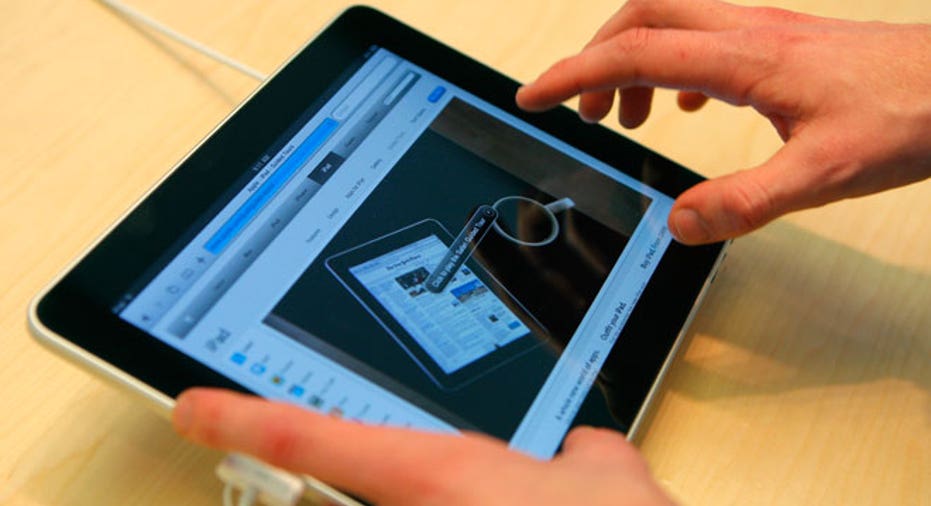Apple May Have Won the PC War… By Losing the Windows Battle

What exactly is a PC? That question is likely to become a hot topic over the next few years.
Originally, we thought of PCs as the Apple II or then the IBM PC. They were machines that had to sit on a desk because, while significantly smaller than a mainframe, they were still big and bulky. They had large monitors, boxy bases, and big keyboards. The original Macintosh attempted to make this footprint a bit smaller and the package more compact, but the IBM clones won the day. Windows won the day. PCs by Compaq and HP led to machines by Gateway and Dell. Boxy bases were joined by massive towers. Bigger seemed better. Small monitors were replaced by huge monitors. Then something changed.
While laptops had existed in various forms for years, by the mid 2000s, the prices, performance, and size made them viable “desktop replacements”. They were different enough from traditional PCs that they had their own name, and people thought of them differently. But eventually, as they started to dominate the market, people just began thinking of laptops as PCs as well. They were, after all, personal computers.
Now we’re in the midst of another new age. People are now carrying around computers in their pockets, called smartphones. But those aren’t considered PCs. Instead, they’re considered descendants of the original mobile phones. The truth is that they’re closer in just about every way to a personal computer — in fact, they may be the most personal computers ever. But they look more like phones, so we consider them phones — even as people make fewer and fewer actual phone calls on them.
And now this line is being further blurred by the rise of the tablet. Cosmetically, it’s almost like a PC screen merged with a smartphone. People have still been very hesitant to call this a PC. That included Steve Jobs, whose iPad dominates the market. Jobs instead thought of the iPad (and the iPhone) as ushering in the “Post-PC” era. He did not want to lump his new devices together with the PC world he had long since lost.
But is that right? Again, if anything, these machines seem more personal than the personal computers of yesteryear. To some, we’re simply arguing cosmetics. The iPad isn’t a PC because it doesn’t look like a typical computer. Of course, neither did a laptop to most people back in the day. Others argue that since devices like the iPad can’t do quite as much as a traditional computer, it’s not a PC. But it’s silly to think that this won’t change over time. The lines will continue to blur.
That’s why I agree with British research firm Canalys’ decision to include tablet sales alongside PC sales in their new report. That’s going to piss some people off because the combination has them projecting that Apple will become the top PC vendor by the middle of next year. If their data is right, Apple will unseat HP to take the crown.
That statement is amazing when you consider that just 15 years ago, Apple nearly went out of business. And just 5 to 10 years ago, they still had single digit market share in the PC space. But that may have actually helped them pull off this stunning comeback. Because they didn’t have the baggage that other PC makers had, they were free to re-invent the wheel — the personal computer — with their iOS devices. Because Apple lost the PC battle to Windows in the 1990s, they may end up winning the personal computing war.
Again, not everyone will agree over this classification of the iPad as a PC. But the whole classification system is really nothing more than marketing (which Jobs also clearly knew). Who cares what the computer looks like or what category it falls in? What matters is what it does and who is using it.
Other numbers released today by eMarketer are staggering. By 2014, they believe there will be close to 100 million U.S. tablet users (the vast majority using an iPad). Meanwhile, HP reported their quarterly earnings today. The traditional PC numbers continue to fall. Things are bleak enough that HP had said they were going to sell off their PC business entirely (though they ultimately decided against that after a CEO change).
Things are crazier still when you look at the numbers from a bottom-line perspective. Apple is the juggernaut making far more profit than anyone else in the industry. We’re arguing semantics about the meaning of the term “PC”, but doesn’t this matter more? Shouldn’t the most successful PC vendor be aligned with the most successful company in the space? Otherwise, who cares who is winning the “PC War”? Great, some guys losing money sold more desktop PCs than Apple last quarter. Does that mean anything of any significance other than showing that the traditional PC business is a shitty one to be in right now?
One high profile person who does believe that tablets should be labeled at PCs? Steve Ballmer, as Nick Wingfield reminds us on Bits today. But Ballmer wants us to buy that so he has a justification for putting Windows on these machines. He doesn’t seem to realize and/or care that by helping to unify the personal computing space, he’s eroding his company’s own dominance.
Apple is set to become the top personal computer maker in the world. They’ll never win the desktop PC battle, but who cares? That fight hasn’t mattered for years.
More from Tech Crunch:



















